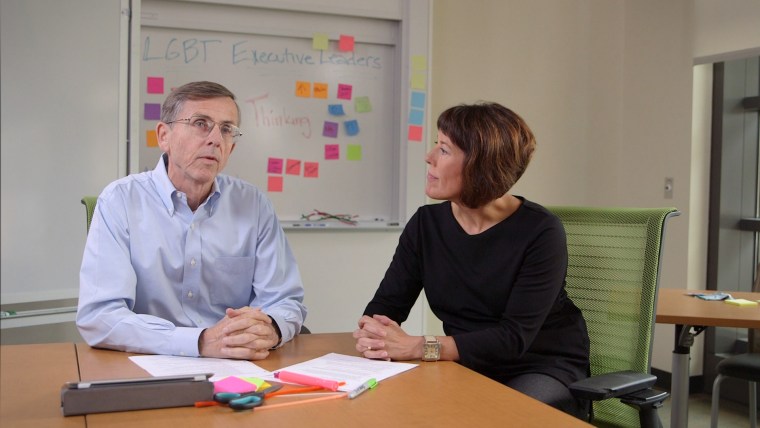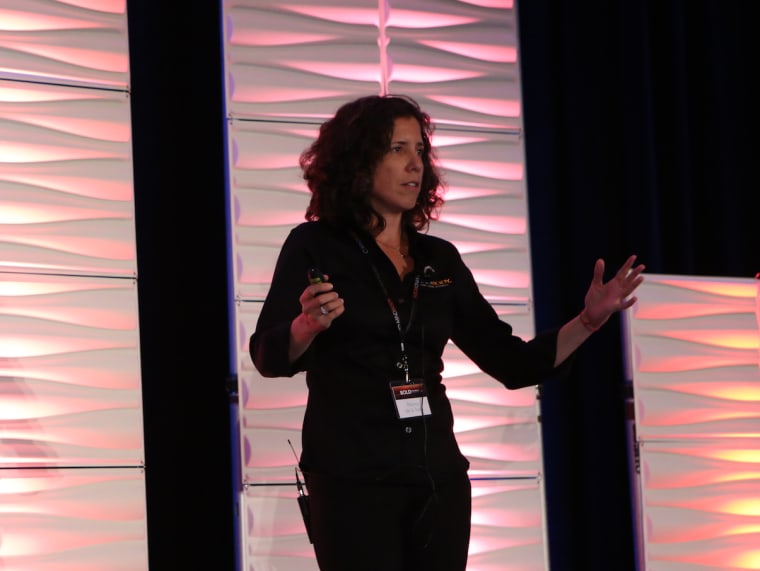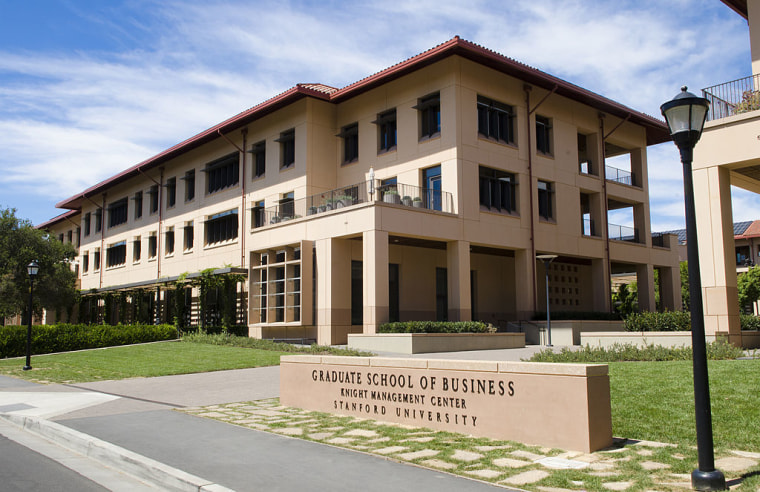In her 20 years of experience in the business world, there has been one thing missing for Marina de la Torre –- a true role model. So when the e-commerce executive learned of the LGBTQ Executive Leadership Program at Stanford Graduate School of Business, she jumped at the opportunity to participate.
“Getting to know other LGBTQ leaders in different countries, industries, companies and roles is empowering and inspiring to me," she told NBC Out. "The prospect of spending a week at Stanford honing my leadership skills with other LGBTQ professionals was exciting.”
In its second year, the $12,000 northern California program is the first academic business program in the U.S. to cater specifically to the lesbian, gay, bisexual, transgender and queer community. Among its key benefits, according to the program's website, is to "learn how your LGBTQ identity influences and strengthens your personal leadership style" and to "build a strong network of LGBTQ peers with whom you can share ideas and experiences."

Sarah Soule, co-director of the LGBTQ leadership program and a professor of organizational behavior, said the intensive program aligns with the motto of Stanford's business school -- "Change lives. Change organizations. Change the world." -- as well as her academic goals.
“The things I care the most about personally are how we figure out ways to do away with inequality and inequities,” she told NBC Out. “My research has been really about how we can make positive change in the world and how can we figure out ways to increase diversity and inclusion in organizations.”
Thomas Wurster, Soule's co-director and a management lecturer at Stanford, said he approaches the importance of the program similarly but is focused more toward the leadership development aspect.
“When I started to teach at Stanford, I noticed how successful and important other executive leadership programs at the school were,” he said, referencing the university's programs for women leaders and Asian-American executives.
However, he said, there was a gap, and he wondered how to close it. “There has been a tremendous shift towards diversity,” Wurster said, “and at the same time there are very few out LGBTQ business leaders.”
Every class is “toggled" through the lenses of leadership development and identity, Wurster explained. Things like management skills are a no-brainer in business education, but Wurster argued identity is also important, because it plays a very important role in how leaders lead.
Matt Kidd, executive director of Reaching Out MBA, a nonprofit geared toward LGBTQ MBA students and alumni, said Stanford's "intent is very noble" but added that an academic business program catering specifically to LGBTQ students needs to strike a balance.
"In general, whenever there's a program that's looking to advance or better prepare people, it's a good idea -- especially a program that seeks to advance people who may not have had equal access," Kidd told NBC Out.
However, he added, "I think the question that's out there right now is to what extent isolating LGBTQ executives and essentially ghettoizing them is a good thing or a bad thing." On the flip side, he said, "there's very much an argument to be made about connecting people."

Stanford's inaugural LGBTQ Executive Leadership Program had roughly 45 executives participating. This year, they hope to have about the same number of students.
Looking back on her participation in the program's inaugural class, de la Torre said her expectations were met. Her goals going into the program were to gain a top-level business education while also expanding her network of LGBTQ professionals.
“I was pleasantly surprised to make many lasting friendships and to have had so much fun together while we were learning and sharing our professional experiences," de la Torre said.
“The discussions that have stuck with me to this day were mainly two: How important it is to not only be out but also visible as an LGBTQ leader within our organizations, and how, as a community, we do not always include the 'T' from the LGBTQ spectrum,” she added.

